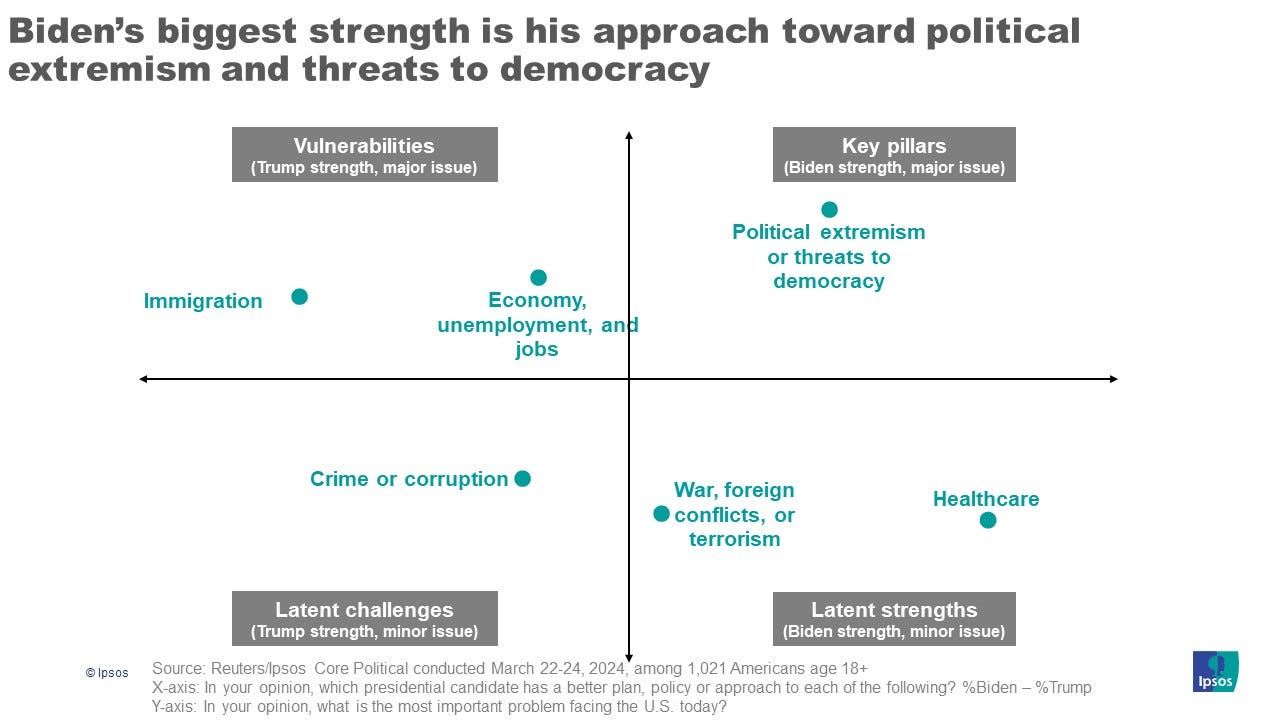Opinion Weekend
March 30-31, 2024
Nine Major Proposals for Government Regulating Artificial Intelligence Favored by Very Large Bipartisan Majorities of Voters Program for Public Consultation, School of Public Policy, University of Maryland As the House’s new Task Force on Artificial Intelligence considers how government should address AI issues, such as deepfakes in the election and bias in algorithms, a new survey finds very large bipartisan majorities favor giving the federal government broad powers to regulate Artificial Intelligence (AI). They endorse seven proposals currently under consideration in Congress and the Executive Branch for regulating AI-generated deepfakes and AI making decisions with the potential for harm. Many Americans are skeptical of electric cars Kathy Frankovic & David Montgomery, YouGov A majority of U.S. adult citizens say they don't own — and would not consider buying — an electric car, and many doubt electric cars are more efficient or better for the environment than traditional gas cars. The Economist / YouGov Poll conducted March 24 - 26, 2024 asked 1,594 Americans about climate change, electric vehicles, and the EPA's new emissions standards that will push automakers to release more low-emissions vehicles.
What presidential approval and the main issue say about Biden’s chances at reelection Clifford Young, Sarah Feldman & Bernard Mendez, Ipsos Five charts on where Biden stands among the American public and what these key indicators say about Biden as we inch closer and closer to the 2024 election.
Why do we dislike inflation? Stefanie Stantcheva (Harvard), Brookings Papers on Economic Activity I conducted two surveys on representative samples of the US population to elicit people’s perceptions about the impacts of inflation and their reactions to it. The predominant reason for people’s aversion to inflation is the widespread belief that it diminishes their buying power, as neither personal nor general wage increases seem to match the pace of rising prices. As a result, respondents report having to make costly adjustments in their budgets and behaviors, especially among lower-income groups. Inflation also provokes stress, emotional responses, and a sense of inequity, as the wages of high-income individuals are perceived to grow more rapidly amidst inflation.
The State of Primary Care in the U.S. and Nine Other Countries Commonwealth Fund For many people, primary care is their first point of contact with the health system, and decades of evidence shows it is critical for population health, health equity, and the overall efficiency of health care systems. To better understand how patient care can be improved in a changing primary care landscape, this brief compares the state of primary care in the United States with nine other high-income nations.



